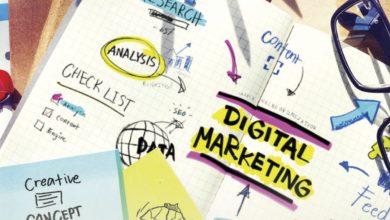ARTIFICIAL INTELLIGENCE
AFRAID OF THE ‘AI WOLF’?
Dr. Muneer Muhamed hails the myriad prospects of artificial intelligence
AI is transforming every facet of human life and we really don’t know how far it will go despite sci-fi authors trying to frighten us. While there have been calls to regulate the AI sector, governments have done little about it. However, this tech should be deployed to offer its obvious benefits to society.
It may not be apparent in Sri Lanka but globally, every industry is witnessing an upswing from its use. For instance, over half the marketing heads in developed economies confirm the use of artificial intelligence in some form or the other; and an additional 25 percent plan to use it in the next two years.
As more enterprises embrace AI, it will transform the way we work.
Early adopters are embracing this disruptive technology and many employees in those companies wonder whether they’ll have their jobs in the near future. Are their fears misplaced or will these disruptive AI forces relieve you of your job security?
This advanced technology may not make anyone redundant yet, for AI is not as sophisticated as the human mind in managing both intelligence and emotional quotients (IQ and EQ).
As the technology evolves in the next few years, it’ll need the support of the human brain and that’s an opportunity for employees to stay relevant. Many routine jobs will disappear but new opportunities will emerge, as employment (as we know it today) will undergo an exciting transformation.
If you’re worried about coping in the AI era, here are a few thoughts to help you embrace it better. First, welcome it with open arms. Evaluating its potential uses in your immediate work area is the next step. Automating repetitive jobs and analysing vast data will be easier with AI. Building and curating content on millions of pages of e-commerce sites will become simpler. It will be especially proficient at deriving perspicacity on employees and consumers, and in workflow optimisation.
By eliminating routine tasks, you can focus more on higher level work such as strategy related or priority projects requiring multilevel involvement. The survival mantra is to map your expertise with the strengths of AI and understand its limitations to improve your relevance.
AI driven data analytics help decision makers in management, politics and government to know their target audience better. Big data sorting and deriving insights with predictive patterns will be a key in winning competitive wars and election battles that humans would have otherwise missed. The data output you receive needs to be translated for use by others and that requires a human interface. This is another opportunity for workers to retain their jobs and coexist with AI.
As with all technological developments, high tech cannot survive without ‘high touch.’ No AI initiative will fructify without human inputs. For your career therefore, lifelong learning is a must unlike what people used to think of it – i.e. as being applicable only to the medical profession.
Predictably, AI will evolve much faster in the next five years than it has in the last five and the ability to constantly adapt to tech changes will keep you relevant in the immediate future.
No AI related tech can simulate unparalleled human creativity. If an enterprise wants to create loyal customers who will continue to buy more, it will need more than simply great products.
Customers desire unique buying experiences. This cannot be created without knowing what they’re experiencing today and how those expectations will change tomorrow. Enterprises must be totally customer centric and AI tools can hone this focus with knowledgeable employees. By using AI to handle routine tasks, employees can indulge more in creative pursuits and innovate to deliver better customer experiences.
Enterprises improve their customer interactions and sales when artificial intelligence is integrated seamlessly into customer interfaces. As the technology drives customer expectations higher, enterprises will demand more from employees to deliver even better experiences.
You can use AI to gain social insights and deliver segment specific messages across omni-channels. Yet, the real connection with customers cannot happen without emotions.
If you map the patient journey in the healthcare system where AI is making phenomenal advances, you’d find that it lacks the ability to understand the emotional context of a patient from a regional or cultural perspective. A combination of sophisticated analytical skills and EQ empowers you to leverage AI in ways that weren’t possible before.
There’s no need to fear AI if you develop the skills to derive better social and economic value. As leading European AI experts demand, governments should regulate it now before privacy abuses crop up.
The caveat is that experts such as Tesla’s Andrej Karpathy talk of neural networks (or deep learning) as a new type of software. So will a trend towards ‘teachable machines’ change the way we work and interact with others?








I’m now looking forward to more and more from this author. This one’s a very significant piece! AI can indeed transform work places and unless people upskill and learn, they will be redundant for sure. Malaysia and HK are betting big on creating new jobs with AI. Marketing sure will have a lot to learn and will probably drive the proliferation of AI in most sectors.
Insightful for a fresh marketing executive and refreshing to know that we can indeed conquer AI with our superiority in creative thinking. Over to six thinking hats. Lol
I think the emotional intelligence of human beings will hold the key as no machine can be taught that. Besides, the research says that for every one point increase in EQ, you get USD 1300 higher annual benefits over others. So I tell my employees to pull up their socks, get their thinking caps on and dive deeper into data with the help of AI.
A great article. Complacent people with a fixed mindset should fear AI. The author has already mentioned that empathy and EQ are uniquely human, for now at least. They are a part of many jobs.
I have seen people embracing technology very fast. For instance, my mother-in-law – a novice to technology – switched from voice to Whatsapp and can upload her own videos on YouTube. That is a learning mindset.
AI is a technology that is going to rewrite the socio-economic status of the society – leading to a happy society that enjoys equality and equity. Are housewives scared of the domestic help? It is the same with AI too. Robotics will replace present menial workers. In the earlier days, carpenters, smiths, ginners etc. were not even educated. The same logic would dictate the industry and services.
Every future need and want will be taken care of by AI and the community will elevate itself to a higher plane of quality life. It is true that men will lose their current nature of work, but they will be working at a higher level – employing higher technology. Therefore we should be happy to welcome AI.
AI can never take over humans if we believe in using our brains. However, people in government and other places seem to be more and more dependent on dashboards and computers and should probably be replaced from their chairs by AI machines. We don’t need people without empathy and responsiveness in this tech-savvy society, do we?
It will be great to add ANN, cloud computing, data mining, laced with mathematical modelling. Well thought out detailing.
Building skills in areas such as customer experience, empathy, data presentation, and interpretation will be good for new jobs in the AI regime. Besides, it will make life easier for most people who believe in using their brain and are not dependent on machines as most of us are today, on our mobile phones. We don’t even remember our own home numbers!
Specifically, what skills should a mid-level executive be acquiring to get maximum out of AI invasion in his or her work area?
Overall qualities are understandable. Perhaps the author should write more on this aspect as a followup column.
Nice and positive article. Whenever I hear the word AI, I always think about the movie ‘Eagle Eye (2008)’ and experience a fear inside. This article has cushioned my negative thoughts. As the author mentioned, we need to welcome the new evolving technology by improving our skill set to suit the new environment. To quote Heraclitus, the Greek philosopher – “There is nothing permanent except change.” Thanks for the nice insightful article.
Absolutely topical and relevant. People talk about getting redundant but that can happen to any job if one does not learn constantly.
Inspiring article and very relevant. Marketing is already using AI in a big way. My cousin in Germany has been working on teaching machines to adapt and analyse.
It would have been nice if an example of how AI is bringing change is given in the article. This is a lot of fluff and filler without details.